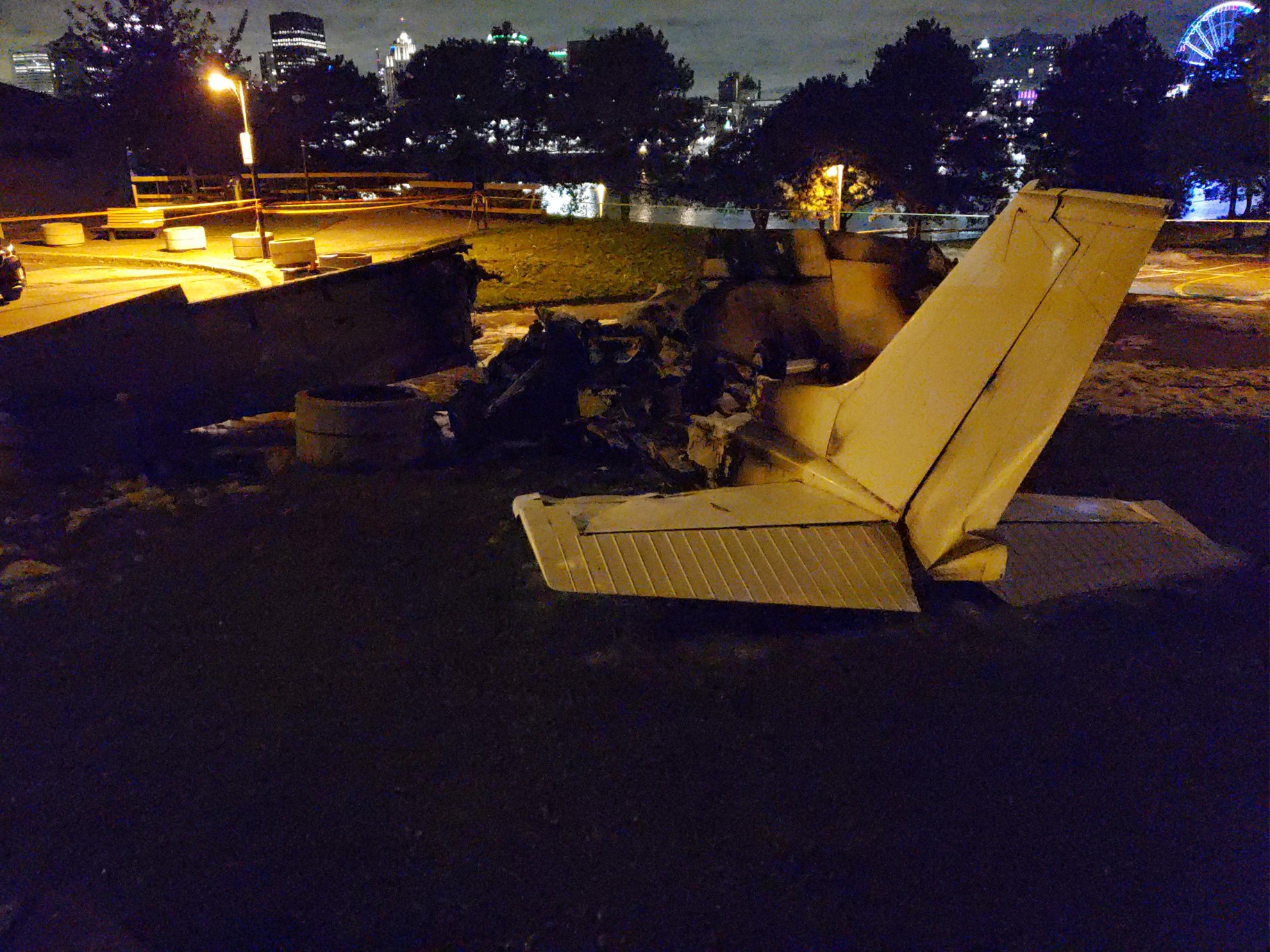Loss of engine power and collision with terrain
Publicité AERO-GRAMME Inc.
Cessna 172M, C-FFRV
Montréal/Pierre Elliott Trudeau International Airport, Quebec, 8.45 NM E
The occurrence
On , at approximately 1745 Eastern Daylight Time, the Cessna 172M aircraft (registration C-FFRV, serial number 17262394) operated by Publicité AERO-GRAMME Inc., took off from St-Mathieu-de-Laprairie Aerodrome (CML8), Quebec, to conduct a visual flight rules aerial advertising flight in the region of Montréal, Quebec. One pilot and 1 passenger were on board. While the aircraft was flying over the St. Lawrence River near the Concorde Bridge, a loss of engine power occurred. While the pilot was attempting to conduct an emergency landing on Pierre-Dupuy Avenue, in the borough of Ville-Marie, Montréal, the left wing grazed some treetops. The aircraft began to cartwheel and struck the ground. There was a post-impact fire. The pilot was seriously injured but managed to evacuate the aircraft. The passenger was unable to evacuate the aircraft and received fatal injuries. The aircraft was destroyed. No signal was detected from the emergency locator transmitter.
Media materials
News release
Unfavourable weather conditions and loss of engine power contributed to a 2021 fatal small plane crash in Montréal, Quebec
Read the news release
Deployment notice
TSB deploys a team of investigators following an accident involving a banner towing aircraft in Montreal, Quebec
Dorval, Quebec, 2 October 2021 — The Transportation Safety Board of Canada (TSB) has deployed a team of investigators to the site of an accident involving a Cessna 172 banner towing aircraft in Montreal, Quebec. The TSB will gather information and assess the occurrence.
Investigation information
Download high-resolution photos from the TSB Flickr page.
Class of investigation
This is a class 3 investigation. These investigations analyze a small number of safety issues, and may result in recommendations. Class 3 investigations are generally completed within 450 days. For more information, see the Policy on Occurrence Classification.
TSB investigation process
There are 3 phases to a TSB investigation
- Field phase: a team of investigators examines the occurrence site and wreckage, interviews witnesses and collects pertinent information.
- Examination and analysis phase: the TSB reviews pertinent records, tests components of the wreckage in the lab, determines the sequence of events and identifies safety deficiencies. When safety deficiencies are suspected or confirmed, the TSB advises the appropriate authority without waiting until publication of the final report.
- Report phase: a confidential draft report is approved by the Board and sent to persons and corporations who are directly concerned by the report. They then have the opportunity to dispute or correct information they believe to be incorrect. The Board considers all representations before approving the final report, which is subsequently released to the public.
For more information, see our Investigation process page.
The TSB is an independent agency that investigates air, marine, pipeline, and rail transportation occurrences. Its sole aim is the advancement of transportation safety. It is not the function of the Board to assign fault or determine civil or criminal liability.
